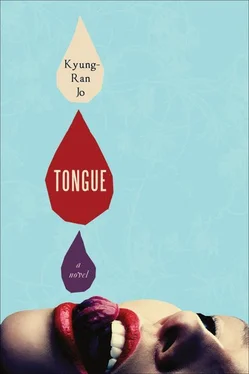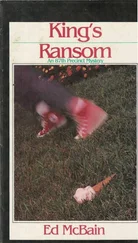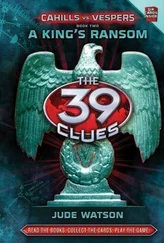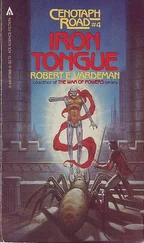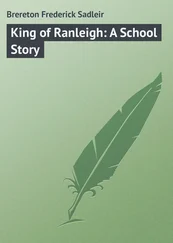I walk into the hospital. In the spring and fall, the place is blanketed with Japanese cornelian cherry, dicentra, maple—more like a resort than a hospital. In reality, Uncle may just need somewhere to rest, not to be cured. Now that I’m alone, Uncle could run with me. Then one of us would be able to walk Paulie, who’s the kind of dog that must be walked every day, and I wouldn’t have to boil a single egg for breakfast. But I know I’m not ready yet. I still can’t forget the terrifying scene I witnessed, of Uncle downing my alcohol-based facial toner. Uncle said his illness was caused by love, but in my eyes it just showed how a woman could ruin a man. Now I know I have to be prepared for a scenario that is the other way around.
I’ll wait a little longer. Everyone makes mistakes, and it’s not too late to fix things when you realize you’ve made one. I’ll wait until spring, when I’m a little more energized. It’s impossible to imagine a world without salt. Everyone needs salt. I’m hurting right now not because we’ve split up, but because I can’t say “I love you” as I did before. If I can’t start over with him and go back to the beginning, then I’ll make sure I end it exactly as we started it. Holding a thermos of Uncle’s favorite spicy seafood soup brimming with tomatoes and basil, I march toward the reception desk.
THE QUESTION OF why I became a cook is almost unanswerable. It’s the same as asking, Why did you fall in love with that man instead of all these other men? Of course you can’t give a clear reason. This is unexplainable even to the person you’ve fallen in love with. I can give an example. Let’s say you’re the sun. The sun takes the purest and lightest particles of seawater and lifts them into the air. Salt is left behind because of its weight and heft, a product of these solar movements. If this is to be an adequate example, I have to talk about the sun’s passion and motive in making salt. Creating salt is sort of the ultimate fate for the sun. The importance of salt naturally elevates the sun’s value in the world of gourmandism. Every human act is only a dream at first. That dream comes to you sometimes like fate, other times like coincidence, and it can be achieved in unbelievable ways. In my case, it all began with a pheasant.
Twenty years old, I was sitting in my college history class, chin cradled in hand, daydreaming. I didn’t know what I should do with myself. Twenty years of age is like a pineapple—a crown tops your body, but instead of being able to merely shave away the peel, a knife is needed to strip off the leaves to get to the inner fruit. You’re filled with juice, but the part that can be consumed is wrapped tightly in short, pointy leaves, and you don’t yet have seeds or a firm core. My biggest problem was that I couldn’t find something I could engage with passionately. While spring was the season in which some people regained their energy, for others it was the season into which they dragged themselves, reeling from the aftershock of winter. All I could get myself to do was look out the window during lectures, bored, facing the clouds slowly drifting in the wind or being embraced by the gentle, light spring breeze.
That day in April, I sat by the window in the lecture hall, the sun just starting to set, captured by a faint hope that maybe being twenty years old wasn’t like being a pineapple but more akin to tasting something delicate and fresh and light and textured, like the spring breeze. And I sat there watching as a brightly colored chicken flew into the lecture hall, flapping abruptly into my daydream. It took me a while to realize that it wasn’t a chicken but a bird with shorter legs and a longer tail—a pheasant. The lecture hall erupted into chaos.
Still in my seat, clasping my trembling hands tightly, I stared at the strong, slippery-looking pheasant, its bright black eyes shining from near its white beak and red feathers, its dark navy neck speckled with purple, its gold chest, its length of over eighty centimeters. Eventually the professor and a couple of boys managed to capture the bird by the wings, which flapped desperately, and tossed it out the window. The commotion died down, but the professor wasn’t able to regain anyone’s attention, everyone whispering about the sudden entrance of the pheasant, suggesting that we should have captured it and presented it to the security guard instead of tossing it out the window, or discussing the possibility that it hadn’t actually been a male but a female with plain brown feathers, or that it had been a white pheasant that was supposed to be so rare, or that it hadn’t been a pheasant at all but a chicken. All these conjectures fluttered lightly around the room along with the bird’s feathers, the only proof that a pheasant actually did fly in through the window.
One day when I was little, Grandmother held out something red and round and told me it was an apple. Apple. I remembered the word apple . And Grandmother told me to touch it, and asked, What does it feel like? I understood that this thing called an apple was firm and cold and very smooth to the touch. Then Grandmother had me sniff it and take a bite out of it. Each time I had to report what I sensed—it smells nice, it’s sour and sweet. I grew up following Grandmother around the orchard, watching pears and apples ripen and fall to the ground, their white, cloudlike blossoms blooming and fading. My sensitivity to and knowledge about flavors is completely a product of Grandmother’s unique educational philosophy, taught in the orchard and kitchen. But I don’t think I’m as rational as others who are sensitive to taste. I was introduced to the vast, infinite world of sight, sound, touch, taste, and smell by a single apple. Afterward, as I neared puberty, Grandmother taught me how to taste the melding of ingredients and seasonings and evaluate them, introducing me to various tastes and awakening the different parts of my tongue.
After the pheasant’s exit, I went back to staring out the window, unconcerned about my classmates’ theories. That’s when I realized it. I couldn’t stop myself from leaping out of my seat. What I needed now wasn’t to learn about boring historical events, but the kind of work I could do using my senses of smell, taste, touch, sight, hearing. My eyes had sliced through the pheasant’s body as I murmured to myself, You’re beautiful, but your firm flesh, if handled by knife and fire, will slide smoothly down my throat. It was the first time I’d talked to a pheasant and the first moment I understood that gourmandism wasn’t a simple sense-driven thing, but a clear and rational act. This newfound knowledge of mine whispered to me that I should choose to do something I enjoyed, to live the kind of life I’d be happy in. This awakened in me the impulse to gulp down things I’m strongly attracted to, things I like.
The next day, I dropped out of college and applied to the first Italian cooking school that opened in Korea. I was still twenty years old, but I was a twenty-year-old who had attained something I hadn’t had the day before. The light, the kind that only eyes accustomed to the dark could discern—this light captured me.
The crucial question isn’t why I became a cook. Going back to the example of the sun: To get to the point where a lot of salt is created, the solar rays have to penetrate deeper, to the core. You can’t lose your passionate curiosity toward the man you love, and you have to go to him with your entire being, recklessly and passionately. Right now, what I must question and doubt is: Is this true love? And does he love me? And this is the only question that will never be answered.
FEBRUARY, THE SHORTEST MONTH of the year as well as one bereft of holidays, is generally slow for the restaurant industry. But you can’t go home early or work less just because there are fewer customers. At Nove, February is when we develop a new menu, so it’s the month most fraught with emotion and tension. This is when we devise the new summer menu that we’ll introduce in July.
Читать дальше
